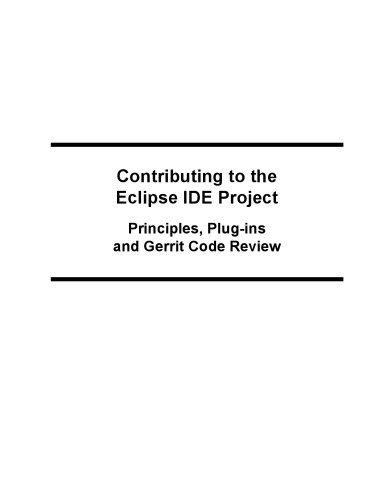

Most ebook files are in PDF format, so you can easily read them using various software such as Foxit Reader or directly on the Google Chrome browser.
Some ebook files are released by publishers in other formats such as .awz, .mobi, .epub, .fb2, etc. You may need to install specific software to read these formats on mobile/PC, such as Calibre.
Please read the tutorial at this link: https://ebookbell.com/faq
We offer FREE conversion to the popular formats you request; however, this may take some time. Therefore, right after payment, please email us, and we will try to provide the service as quickly as possible.
For some exceptional file formats or broken links (if any), please refrain from opening any disputes. Instead, email us first, and we will try to assist within a maximum of 6 hours.
EbookBell Team

5.0
68 reviewsThis is the second edition of the book. It describes how to contribute to the Eclipse open source project using the Eclipse platform project as example. It starts with an introduction into the structure of the Eclipse project and how to contribute code via the Gerrit code review system. It includes a short introduction into Eclipse plug-in development.
It also includes a short introduction into JUnit tests and how to run the platform unit tests.
Afterwards tools to analysis the Eclipse code base are presented and it is explained how to build the Eclipse IDE itself.
The last chapters contains short information and interviews with Eclipse project leaders about how to contribute to selected popular Eclipse projects like SWT, JDT, CDT and Tycho.